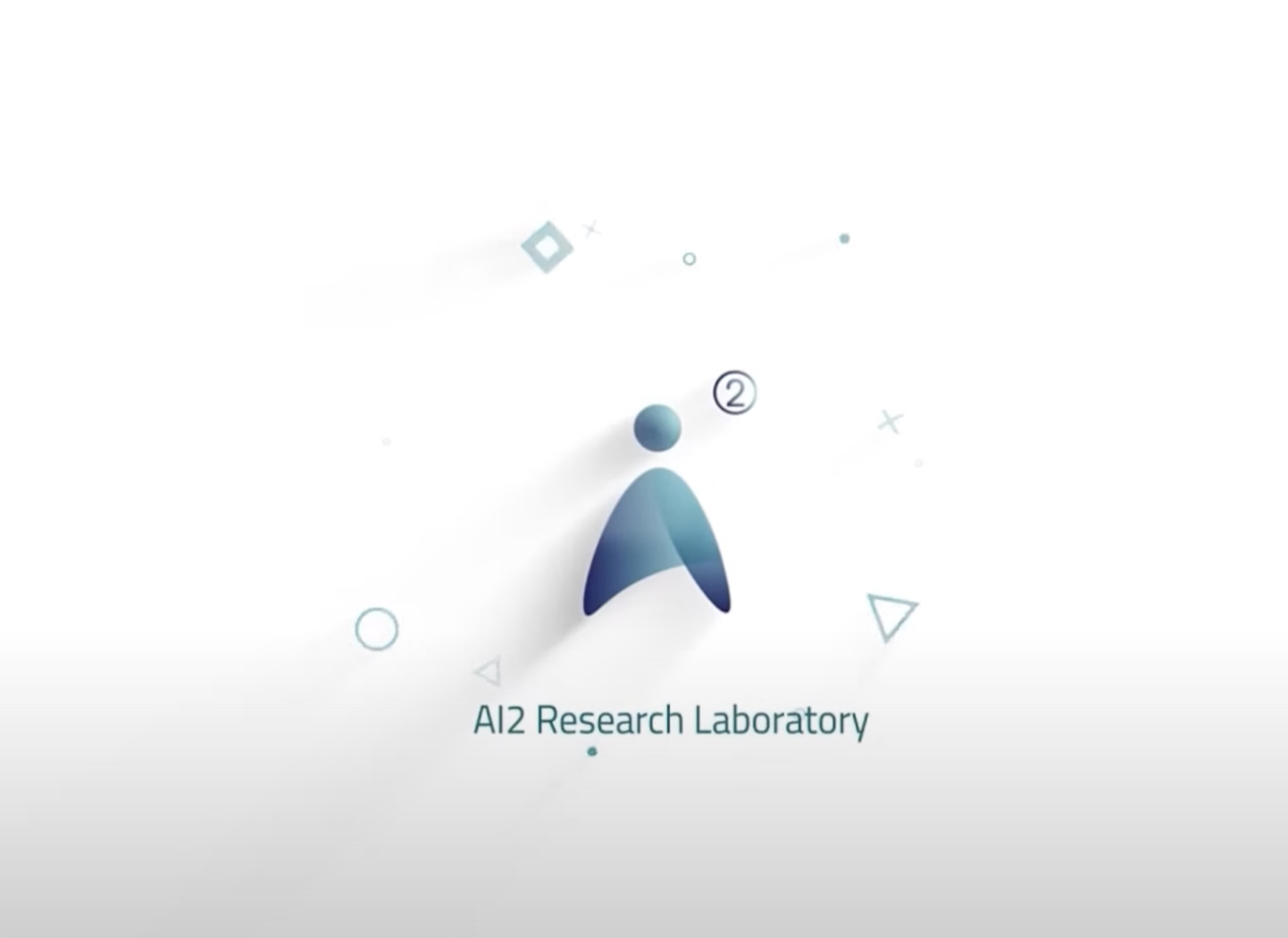
NSF AI ALOE Institute Research Videos Now Available 🔗
May 4, 2023
We have created two video presentations for public access. The videos introduce our AI research and development, centering on two topics: Concept Learning and Personalization. We define concept learning as the cognitive process of building a solid understanding of STEM content necessary for developing critical thinking and problem-solving skills. Personalization is one of the goals pursued in AI in education that enables learners to be better engaged in and regulate their learning and performance. Additionally, personalized support for instructors can empower them to support learners in more adaptive and appropriate ways. Our three graduate associates, Jinho, Lia, and Yoojin, have served as narrators. Enjoy!
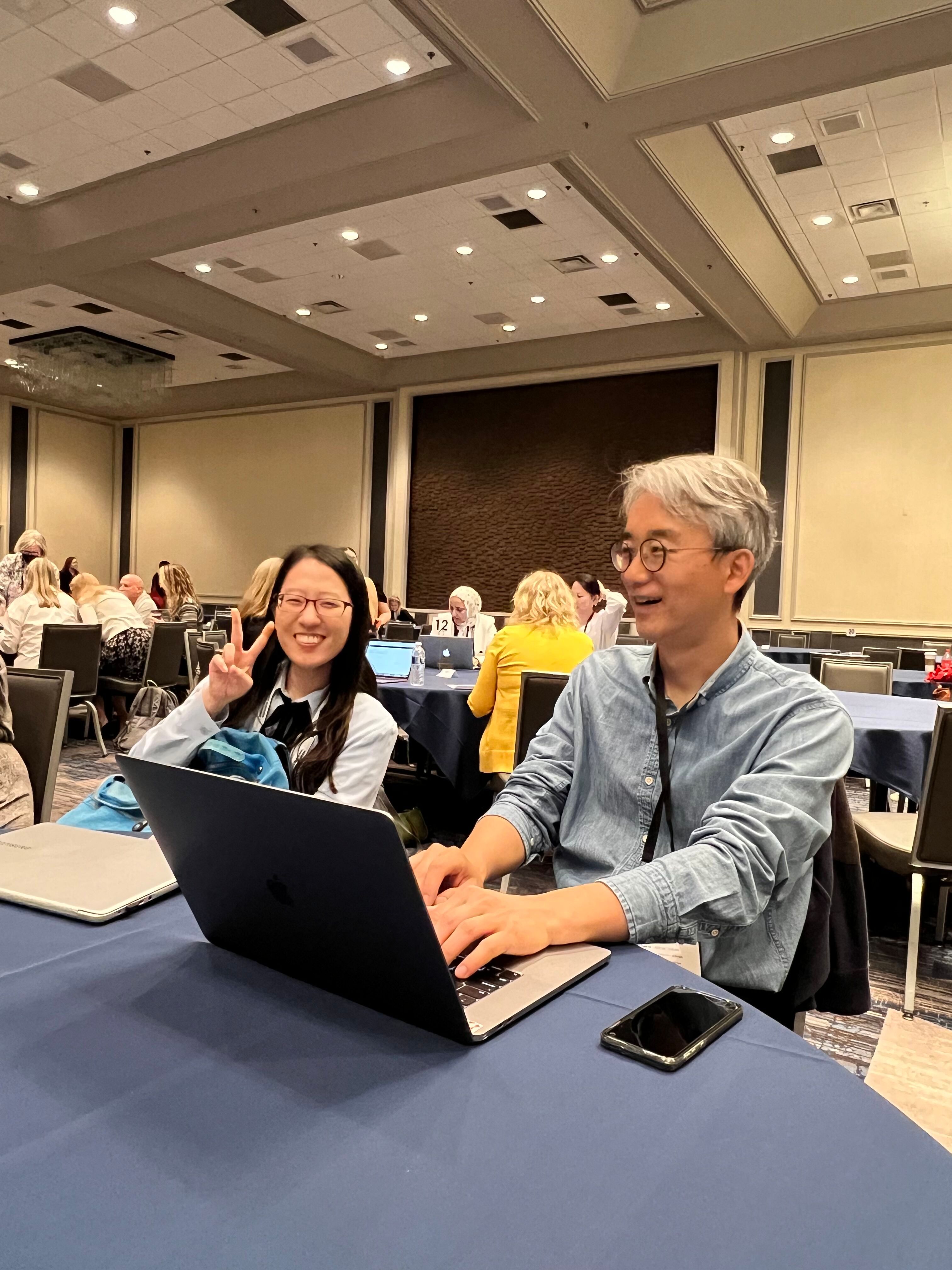
Attending and Presenting at the 2023 AERA Annual Meeting 🔗
April 13, 2023
Members of our AI2 Lab attended and presented at the 2023 American Educational Research Association (AERA) Annual Meeting, which took place from April 13-16 at Chicago, IL.
Dr. Min Kyu Kim and our graduate associate, Jinho Kim, presented the paper titled "Using Machine Learning for Cognitive Presence Detection in Asynchronous Online Learning" at the Instructional Technology SIG Roundtables on the 13th.
Title:
Using Machine Learning for Cognitive Presence Detection in Asynchronous Online Learning
Abstract:
This study aims to explore and develop a machine learning model to automatically detect individual students’ levels of cognitive presence they exert while participating in online discussions. To this end, we used the Practical Inquiry Model to analyze 1,360 discussion posts gathered from the multiple sections of a graduate-level online course. We have used the training data to develop a machine learning model. Especially, we tested a deep learning algorithm, Bidirectional Encoder Representations from Transformers (BERT) model, to find the most suitable hyperparameters. Our final model showed a 94% accuracy in detecting cognitive presence levels reflected on given discussion posts. Findings demonstrate the potential of AI to detect students’ cognitive presence and provide real-time feedback.
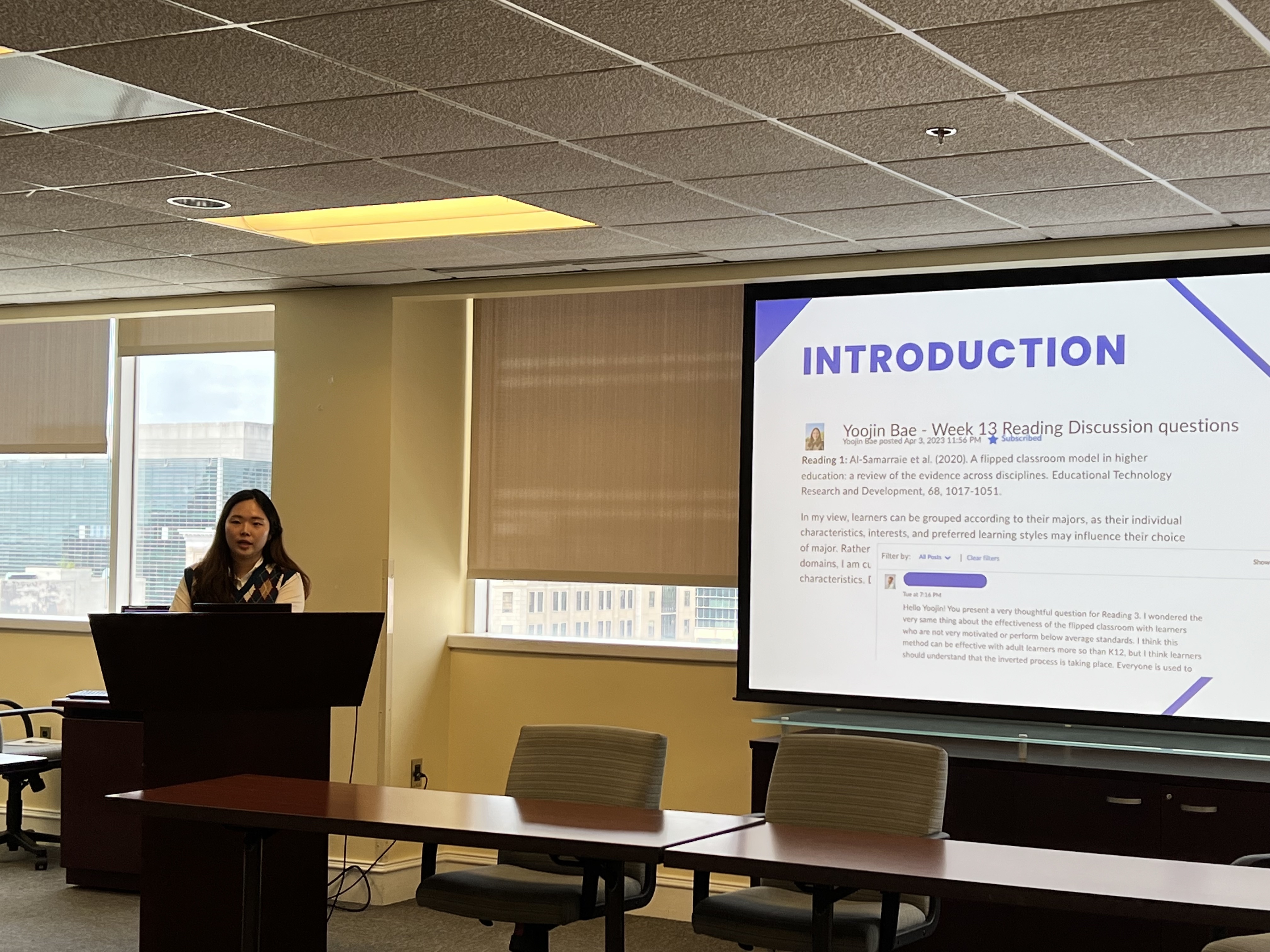
Yoojin presented her recent study at LS-GSA Spring Student Conference 🔗
April 7, 2023
Our graduate associate, Yoojin Bae, presented her recent study entitled "Clustering Cognitive Engagement Changes in Longitudinally Traced Discussion Data from a Graduate-Level Online Course" at the 2023 Learning Science (LS)-Graduate Student Association (GSA) Spring Conference. All of our lab members attended and celebrated her first but wildly successful presentation. Yoojin is in her second semester.
Title:
Clustering Cognitive Engagement Changes in Longitudinally Traced Discussion Data from a Graduate-Level Online Course
Abstract:
Given the pervasive use of online learning, especially asynchronous discussion forums, ensuring students’ ongoing engagement is critical. Examining students’ cognitive presence throughout a series of discussions can disclose different engagement patterns. However, little research has leveraged longitudinal discussion data. The current study aims to identify learner engagement states and their trajectories in discussion forums using two-cohort data from a graduate-level online course. We used HMM (Hidden Markov model) to discover the hidden longitudinal engagement clusters. Results showed two clusters in the first cohort and three clusters in the second cohort. Students tended to remain in a similar engagement state, and their participation patterns depended on the discussion dynamics likely influenced by class size.

Awards received by Jinho Kim and Lia Haddadian 🔗
April 7, 2023
We have exciting news about two of our graduate associates! Jinho Kim won the Outstanding Ph.D. Student in Learning Technologies Award from the Department of Learning Sciences at the College of Education & Human Development at Georgia State University (GSU), and Lia Haddadian was awarded the Doctoral Student Fellowship Award by the Department of Learning Sciences at the College of Education & Human Development at GSU.
The Outstanding Ph.D. Student in Learning Technologies Award is given to a student who has demonstrated potential for excellence in research, teaching, and service in instructional technology. The Doctoral Student Fellowship Award is awarded to Ph.D. students who demonstrate exceptional scholarship and academic potential in the department each year.
Congratulations to both!
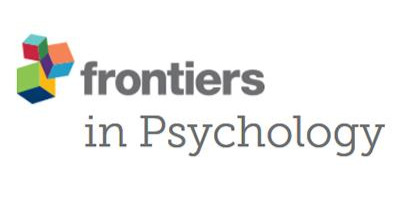
Dr. Min Kyu Kim will serve as a guest editor for a special issue of Frontiers in Psychology 🔗
April 6, 2023
Director, Dr. Min Kyu Kim, working with Co-Director, Dr. Nam Ju Kim, will serve as a guest editor for a special issue that will be published in two journals, Frontiers in Psychology (SSCI listed) and Frontiers in Education. Below is the introduction to the special issue.
Title: Advancements and Challenges in AI Applications for Education
Keywords: AI in Education, Intelligent Tutoring Systems, Automated Essay Scoring, Feedback Generation, Chatbot, Predictive Analytics, Ethical Concerns, Fairness, Transparency, Privacy, Teacher Job Displacement
Background:
Artificial intelligence (AI) is increasingly being used in education, offering opportunities to improve teaching and learning outcomes. Intelligent tutoring systems, automated essay scoring, and feedback generation using chatbots are a few examples of AI technologies being developed and implemented in classrooms. Chatbots like ChatGPT can provide personalized feedback and support to students, analyze performance data to suggest tailored learning resources and assist with grading processes. AI can also enhance accessibility for students with disabilities. While AI has the potential to transform education, there are also ethical and practical considerations that need to be addressed to ensure that the benefits of AI in education are realized while minimizing any potential drawbacks.
Goal:
The goal of this special issue is to advance research in the areas of intelligent tutoring systems, automated essay scoring and feedback generation using chatbots, and predictive analytics for student performance. We aim to explore recent advances in these areas and identify opportunities for further research to improve the effectiveness and accessibility of AI-powered educational tools. Additionally, we aim to address issues related to the use of AI in education, such as ethical considerations, bias and discrimination, transparency, and privacy concerns. By addressing these issues, we hope to promote the responsible and effective use of AI in education.
Scope:
We invite original research articles, review papers, and case studies that contribute to advancing the state of the art in intelligent tutoring systems, automated essay scoring and feedback generation using chatbots, and predictive analytics for student performance. We also welcome papers that explore the ethical, fairness, and equality concerns associated with the use of AI in education, and propose solutions to mitigate these concerns. Specific themes that we would like contributors to address include, but are not limited to:
-Design and development of intelligent tutoring systems, automated essay scoring and feedback generation using chatbots, and predictive analytics for student performance
-Evaluation and validation of AI-powered educational tools
-Ethical considerations in the use of AI in education, including bias and discrimination, transparency, and privacy concerns
-Strategies for addressing teacher job displacement and ensuring that AI complements rather than replaces human teachers
-Case studies of AI implementation in educational settings
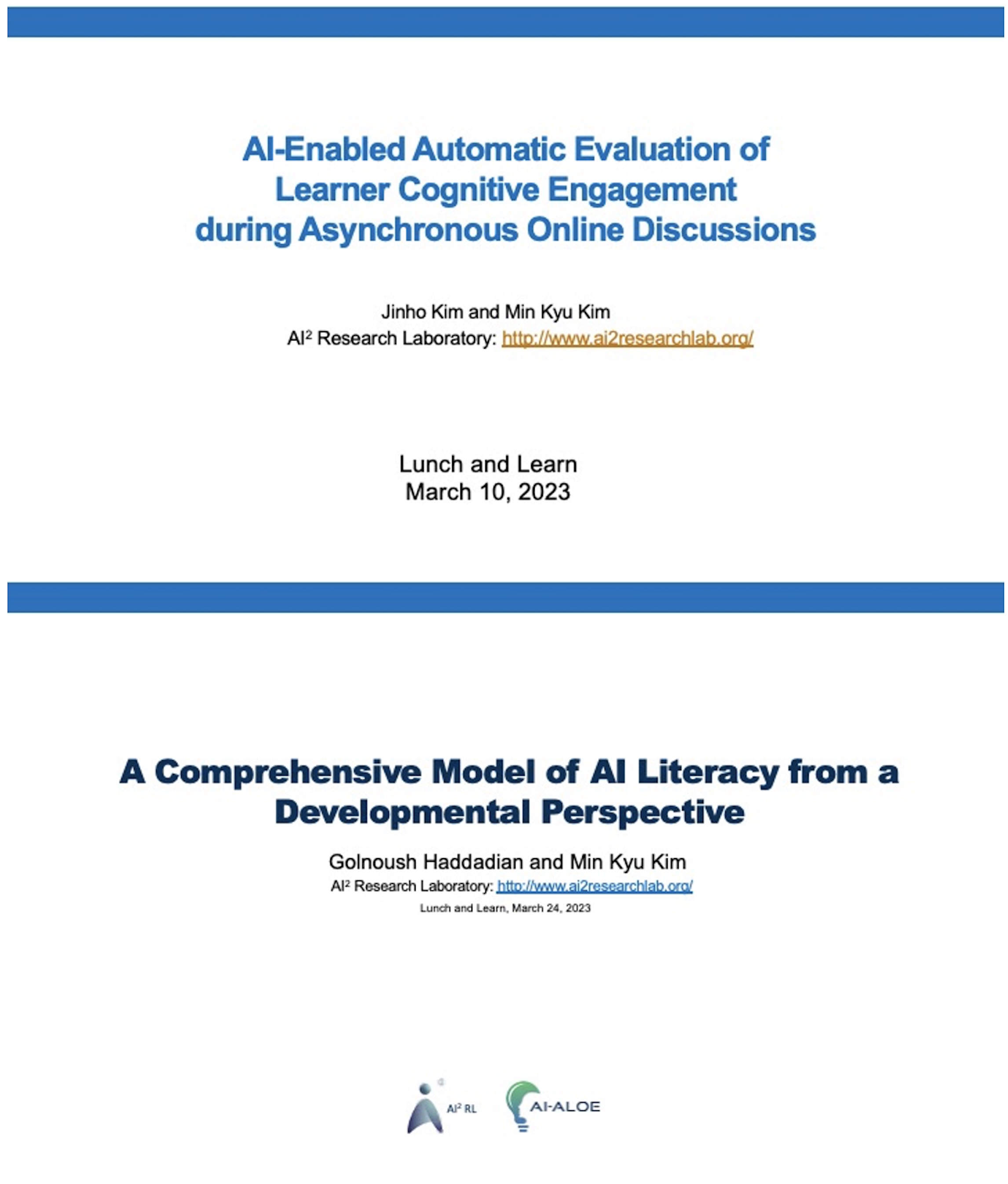
Presentations at Spring 2023 Department Lunch & Learn Meetings 🔗
March 24, 2023
Two graduate research associates, Jinho Kim and Lia Haddaian, and Dr. Min Kyu Kim presented recent studies on AI in education at the knowledge-sharing events called "Lunch & Learn" in the Department of Learning Sciences at Georgia State University. The meetings were held virtually and had approximately 20 attendees per each, including faculty members and graduate students. The first presentation, led by Jinho Kim and Dr. Kim, was held on March 10th, and the second presentation on March 24th, 2023 was presented by Lia and Dr. Kim.
AI-Enabled Automatic Evaluation of Learning Cognitive Engagement during Asynchronous Online Discussions
Presented by Jinho Kim and Min Kyu Kim on March 10, 2023
While online discussions are frequently used to foster interaction, collaboration, and learner achievement, it is challenging for instructors to evaluate and monitor individual students' cognitive engagement during the discussions. This study aims to explore and develop machine learning models to automatically evaluate levels of cognitive engagement from online discussion posts. Using discussion data coded by the Practical Inquiry Model, we search through different hyperparameter combinations of the Bidirectional Encoder Representations from the Transformers (BERT) model. Our results show a finetuned model with 72% accuracy. We then apply the developed model to a new dataset and use the results to explore student clusters and trajectories within a semester. The findings of the study show clearly distinctive cognitive engagement patterns and transitions to the upper-level clusters. This study illustrates the potential of BERT to automatically evaluate learner cognitive engagement levels and demonstrates how to monitor learner progress in terms of cognitive engagement.
A Comprehensive Model of AI Literacy from a Developmental Perspective
Presented by Lia Haddadian and Min Kyu Kim on March 24, 2023
This study aims to propose a comprehensive model of AI literacy from a developmental perspective and demonstrate its potential as an analytic framework to conduct empirical research. We build upon the literature on AI literacy to propose an AI literacy model that consists of cognitive and non-cognitive domains. The cognitive domain is clustered into AI literacy knowledge and AI ethics, while self-efficacy and emotions in using AI constitute the non-cognitive domain. Each AI literacy domain is detailed with associated levels on which an individual’s progress can be explained. In the second part, we introduce an empirical study in which we used the AI literacy model to analyze the AI literacy development of two instructors who deployed an AI tool in their college-level online courses. The empirical case study demonstrates the potential of the proposed model to help research AI literacy development.

AI2 Lab Spring 2023 Feast 🔗
March 17, 2023
AI2 Lab had a spectacular time at the Spring Feast event at Dr. Kim’s house! It was the perfect occasion for the AI2 members to come together during the Spring break on March 17, 2023. It was our second face-to-face fun activity.
Dr. Kim's talent in cooking was impressive, as evidenced by the delicious Gimbop and Japchae dishes he prepared. It takes skill and creativity to bring out the flavors and textures in a dish, and Dr. Kim had a knack for it.
Lia and her husband took the event to the next level by teaching how to dance in Persian and Arabic styles. These dances are known for their elegance, grace, and intricate hand and arm movements. Learning these dances was not only fun and exciting but also gave us a greater appreciation for the beauty and diversity of different cultures. The energy in the room skyrocketed as we were all fully immersed in the rhythms and movements of these beautiful dance forms.
But that’s not all! We had the opportunity to not only enjoy delicious food and learn new dance moves but also share and learn more about each other's cultures and differences. The atmosphere was filled with lively conversation and curiosity as we all got to know each other’s world on a deeper level.
The event was a fantastic combination of serious learning and fun. It was an enriching experience, and we can't wait for the next opportunity to come together and create more wonderful memories.
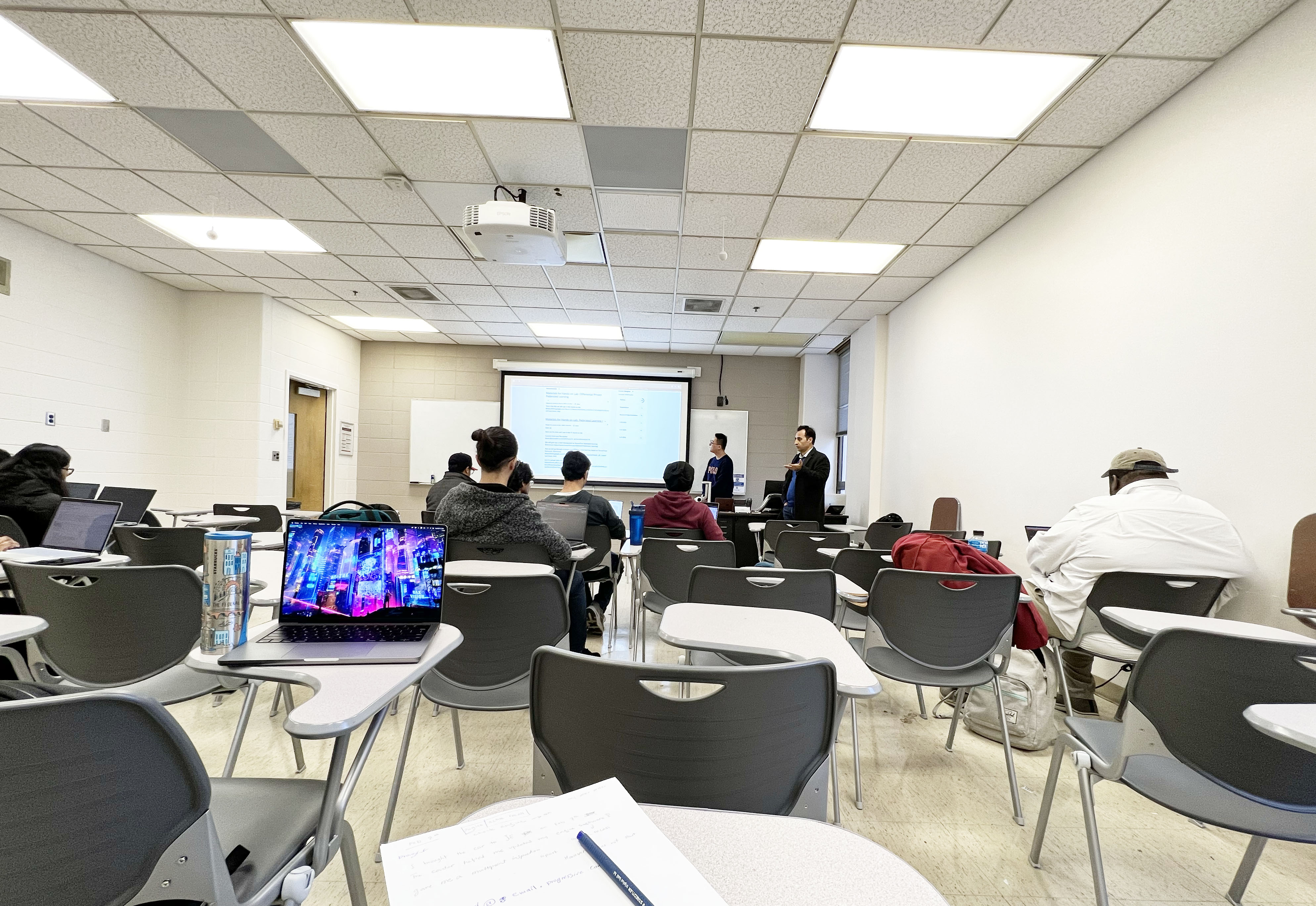
NSF-SaTC-Private AI Project: Field Test in February 2023. 🔗
February 28, 2023
From February 9th to February 23rd, we conducted a field test to implement the Private AI curriculum in an undergraduate CS classroom. This endeavor involved implementing two modules out of a total of ten, with the following topics:
- Privacy-Preserving Machine Learning with Secure Multiparty Computation (SMC)
- Privacy-Preserving Distributed Machine Learning
Throughout the field test, students participated in hands-on lab activities to solve real-world private AI problems, which allowed for an immersive learning experience.
The success of this field test is a milestone in our ongoing efforts to develop and implement cutting-edge cybersecurity education curricula. As we continue to refine and expand upon this program, we remain committed to ensuring that our curriculum equips future students with the necessary knowledge and skills to navigate their learning journey.
Stay tuned for further updates on our progress in this area.

Dr. Min Kyu Kim Presented the Year 1 Research at the AI-ALOE Retreat 🔗
February 09, 2023
Co-Director, Dr. Min Kyu Kim, presented the year 1 research outcomes at the AI-ALOE retreat held in the Technology Square Research Building (TSRB), Rooms 133 &134, at GaTech, from Thursday, Feb. 9, and Friday, Feb. 10, 2023. AI-ALOE consists of approximately 52-55 researchers, including graduate assistants. 40-42 members actively participated in the Retreat, including about 32-34 in person. The AI-ALOE members discussed the following:
Goal 1: Review Year 1 impact on AI and on learning & education
Goal 2: Define the strategic goals of AI-ALOE more sharply
Goal 3: To review all AI-ALOE projects on AI against AI goals
Goal 4: Charting a course for Year 2 (and Years 2-5)
Our two project GRAs, Jinho Kim and Yoojin Bae also attended in person to share their research experience and suggestions from a GRA perspective.
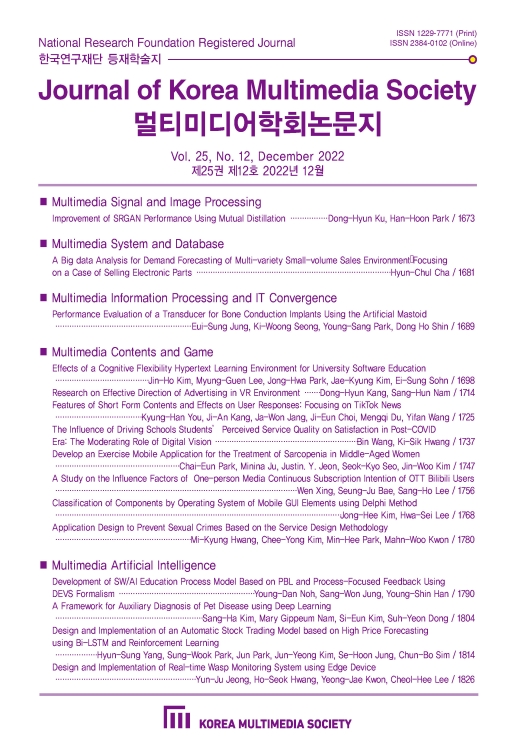
Publication in the Journal of Korea Multimedia Society 🔗
January 27, 2023
Kim, J., Lee, M., Park, J., Kim, J., & Sohn, E. (2022). Effects of a Cognitive Flexibility Hypertext Learning Environment for University Software Education. Journal of Korea Multimedia Society, 25(12), 1698–1713.
Abstract
This paper analyzed the effects of a cognitive flexibility hypertext learning environment to improve computational thinking skills, and perceptions and attitudes towards software in university software education. The research questions were ‘Is cognitive flexibility hypertext learning environments effective in improving university students’ computational thinking skills?’ and ‘Is cognitive flexibility hypertext learning environments effective in improving university students’ perceptions and attitudes towards software?’. The following conclusions can be drawn based on the results of the study: First, cognitive flexibility hypertext learning environments can be effective in improving university students’ computational thinking skills. In particular, it was found that cognitive flexibility hypertext learning environments can be effective in promoting pattern recognition. Second, cognitive flexibility hypertext learning environments can have no effect in improving university students’ perceptions and attitudes towards software. Based on the discussions, cognitive flexibility hypertext learning environments can be an effective method to develop learners’ computational thinking skills in university software education.